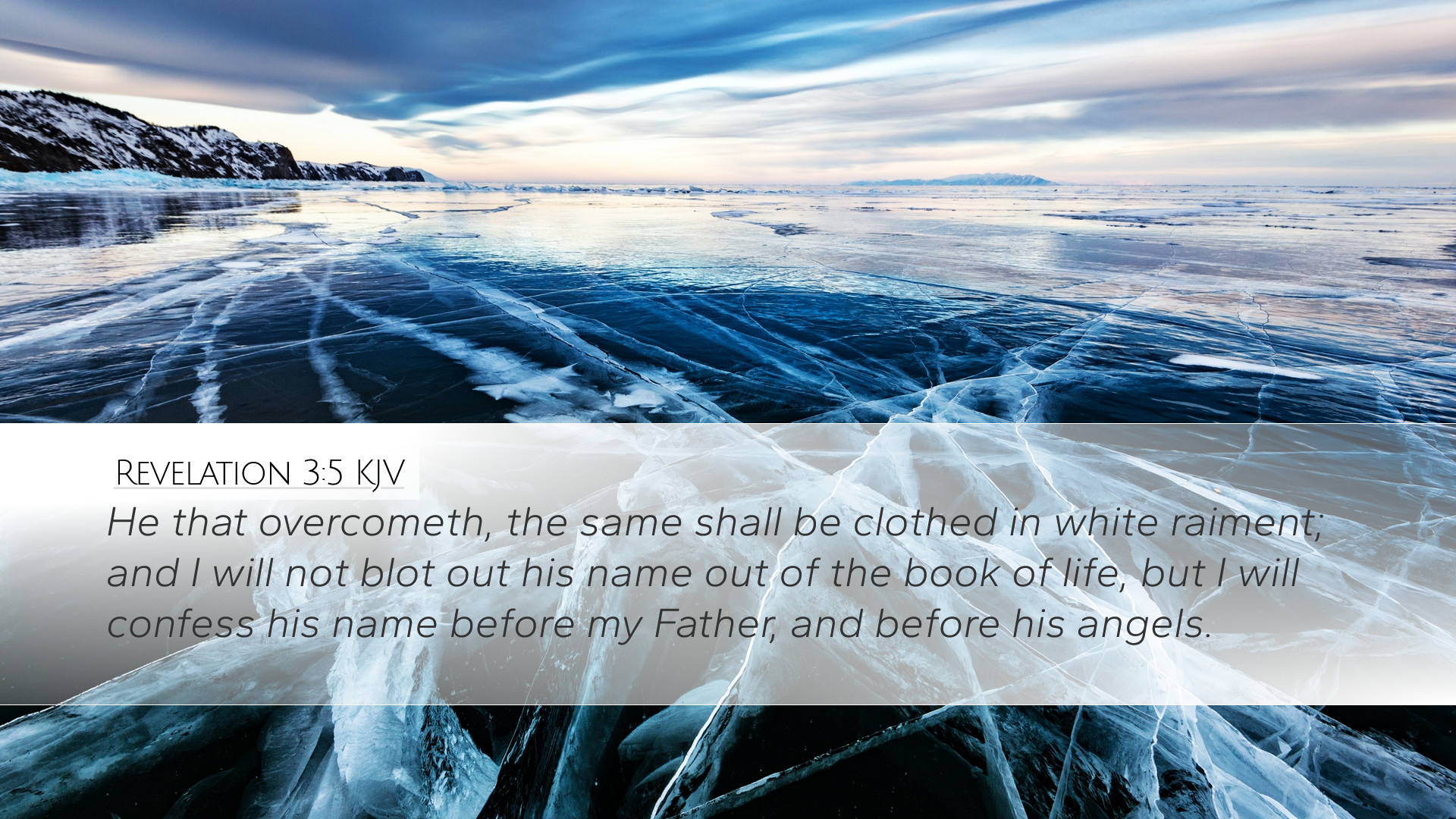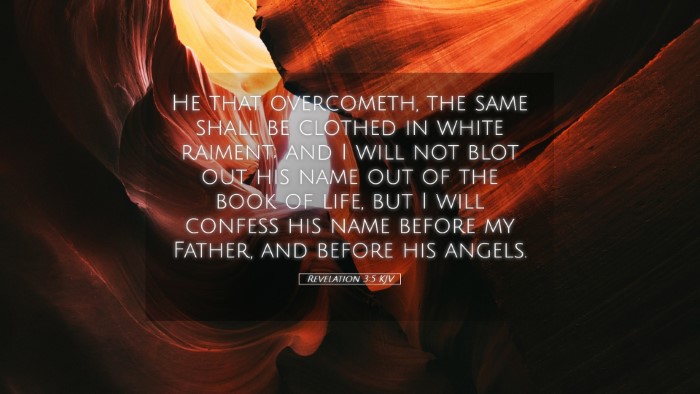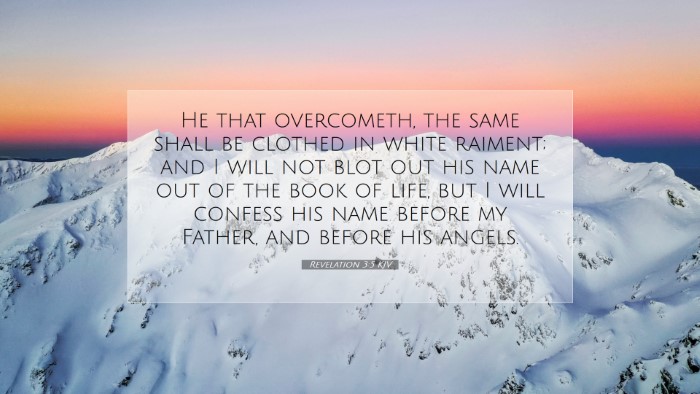Commentary on Revelation 3:5
Text of Revelation 3:5: "The one who conquers will be clothed the same way, dressed in white. I will never erase his name from the book of life, but will acknowledge his name before my Father and before his angels."
Introduction
This verse from Revelation speaks to the promises extended to those who overcome in faith. As part of the larger letter to the Church in Sardis, it reflects both the challenges faced by early Christians and the enduring hope found in Christ. Insights gathered from public domain commentaries suggest profound theological implications regarding assurance of salvation, identity in Christ, and the assurance of divine recognition.
Dress of the Conquerors
Matthew Henry emphasizes the significance of being "clothed in white," which symbolizes purity, victory, and the righteous acts of the saints. White garments represent the cleansing power of the blood of Christ. For the early Church, particularly in Sardis, which faced moral decay and spiritual lethargy, this assurance served as an invitation to renewed faith and commitment.
Albert Barnes expands on this imagery, proposing that white garments were often worn by victors in ancient times, symbolizing triumph over sin and death. The act of being clothed signifies a transformation that is both internal and external, reflecting the believer's identity in Christ as justified and sanctified.
This clothing in white also speaks to the believer's future hope, as hinted in Revelation 7:14, where those who come out of the great tribulation are described as having washed their robes and made them white in the blood of the Lamb.
The Book of Life
The next salient point in this verse is the reference to the "book of life." Adam Clarke notes the importance of this concept within Jewish thought, where names inscribed in heaven symbolize ultimate salvation and covenant faithfulness. In contrast, those whose names are not found in the book face dire consequences as depicted throughout scripture.
Matthew Henry remarks on the assurance provided to believers that their names cannot be erased from this book, highlighting the eternal security offered in Christ. This promise serves as motivation to persevere in faith amid adversity, further underscoring the distinction between genuine believers and those who merely profess faith.
- Security of Salvation: The unerasable name signifies that true believers can rest in the confidence that their salvation is secured by Christ.
- The Nature of Faith: This assurance acts as a rebuke to the complacency within the Sardis church, urging members to rekindle their faith.
Divine Acknowledgment
The promise of being acknowledged before God and His angels is profound. Albert Barnes notes that this acknowledgment suggests a personal relationship between the believer and God, where the faithful are recognized as part of His family. This reflects Jesus' teaching in Matthew 10:32 regarding the acknowledgment of those who confess Him before men.
Adam Clarke further illustrates that such acknowledgment also elevates the status of believers, as they are presented before the Father, not with shame or guilt but with honor and recognition. This brings forth a understanding of the intimate connection God desires with His people and the importance of faithfulness in the walk of the believer.
Lessons for the Contemporary Church
In light of Revelation 3:5, contemporary believers are reminded of the importance of overcoming spiritual lethargy and moral decline akin to that which plagued the church of Sardis. Matthew Henry encourages us to strive forward, reinforcing that there is victory in Christ for all who place their faith in Him.
- Personal Reflection: Believers today must evaluate their spiritual health and relationship with God.
- Calling to Discipleship: The emphasis on victory calls for a life of discipleship and active engagement in faith.
Conclusion
Revelation 3:5 encapsulates the core of Christian hope and assurance through the imagery of white garments, the book of life, and divine acknowledgment. With insights from Matthew Henry, Albert Barnes, and Adam Clarke, we gain a richer understanding of the text that encourages perseverance, commitment, and the vibrant life of faith. Thus, it serves as a timeless reminder for pastors, students, theologians, and Bible scholars to pursue a deep, active faith that not only endures but also thrives in the face of adversity.


